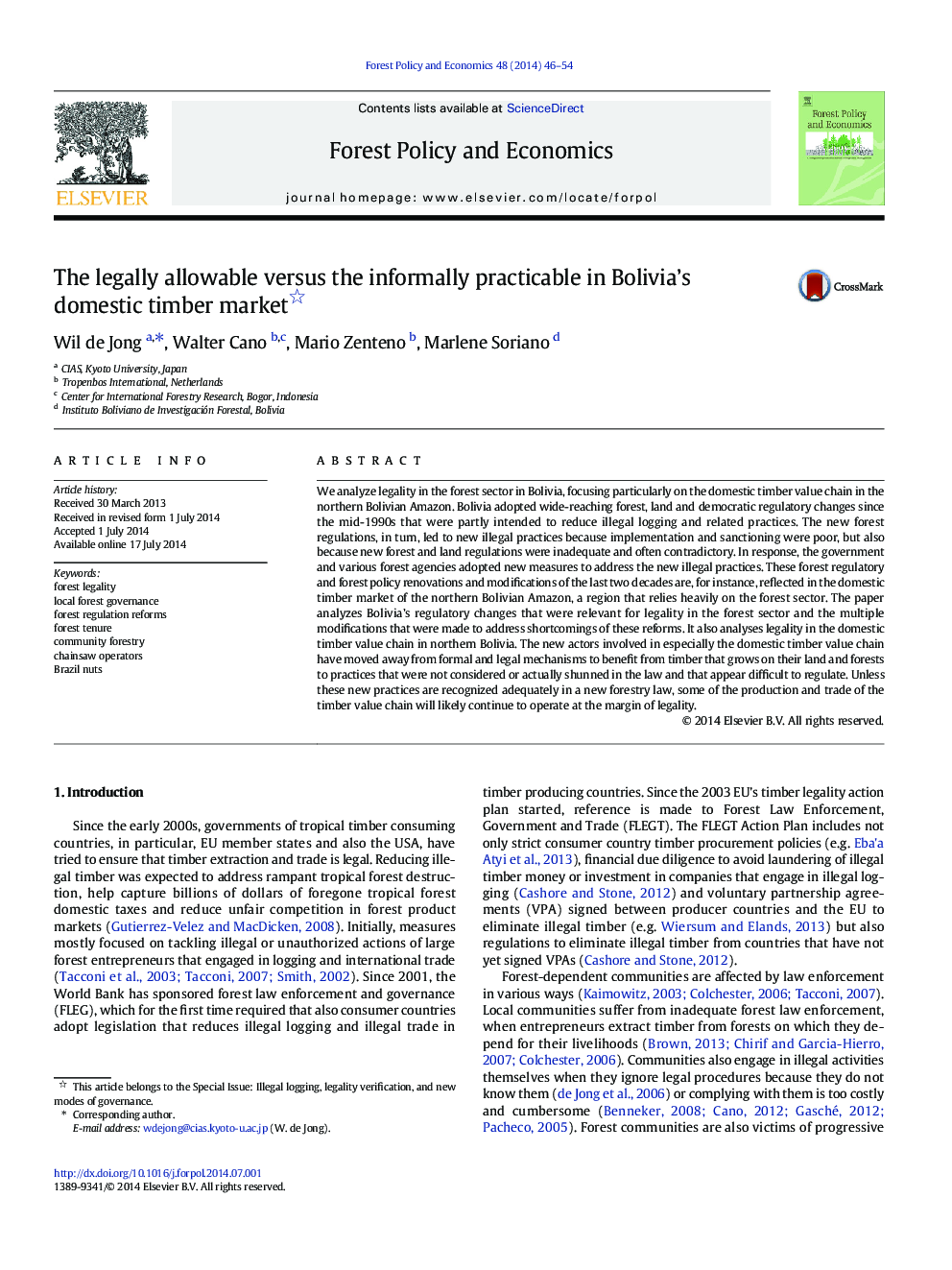| Article ID | Journal | Published Year | Pages | File Type |
|---|---|---|---|---|
| 91447 | Forest Policy and Economics | 2014 | 9 Pages |
•The domestic timber market of Bolivia is largely supplied with timber from communities.•Chainsaw operators facilitate timber trade between communities and the domestic market.•The forestry administration adjusts regulations to accommodate this value chain.•Bolivia’s domestic timber market likely will not meet global standards of legality.
We analyze legality in the forest sector in Bolivia, focusing particularly on the domestic timber value chain in the northern Bolivian Amazon. Bolivia adopted wide-reaching forest, land and democratic regulatory changes since the mid-1990s that were partly intended to reduce illegal logging and related practices. The new forest regulations, in turn, led to new illegal practices because implementation and sanctioning were poor, but also because new forest and land regulations were inadequate and often contradictory. In response, the government and various forest agencies adopted new measures to address the new illegal practices. These forest regulatory and forest policy renovations and modifications of the last two decades are, for instance, reflected in the domestic timber market of the northern Bolivian Amazon, a region that relies heavily on the forest sector. The paper analyzes Bolivia’s regulatory changes that were relevant for legality in the forest sector and the multiple modifications that were made to address shortcomings of these reforms. It also analyses legality in the domestic timber value chain in northern Bolivia. The new actors involved in especially the domestic timber value chain have moved away from formal and legal mechanisms to benefit from timber that grows on their land and forests to practices that were not considered or actually shunned in the law and that appear difficult to regulate. Unless these new practices are recognized adequately in a new forestry law, some of the production and trade of the timber value chain will likely continue to operate at the margin of legality.
